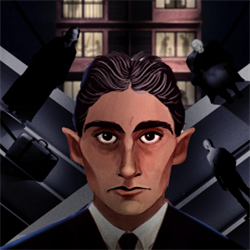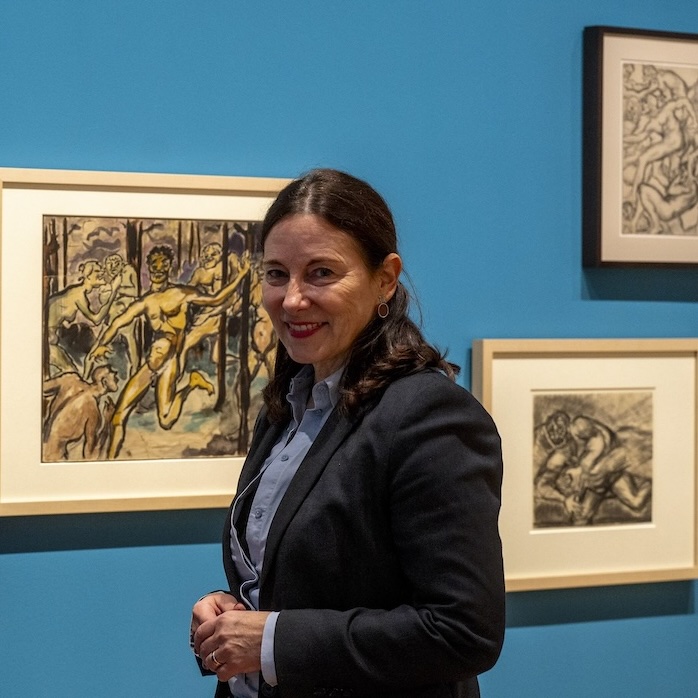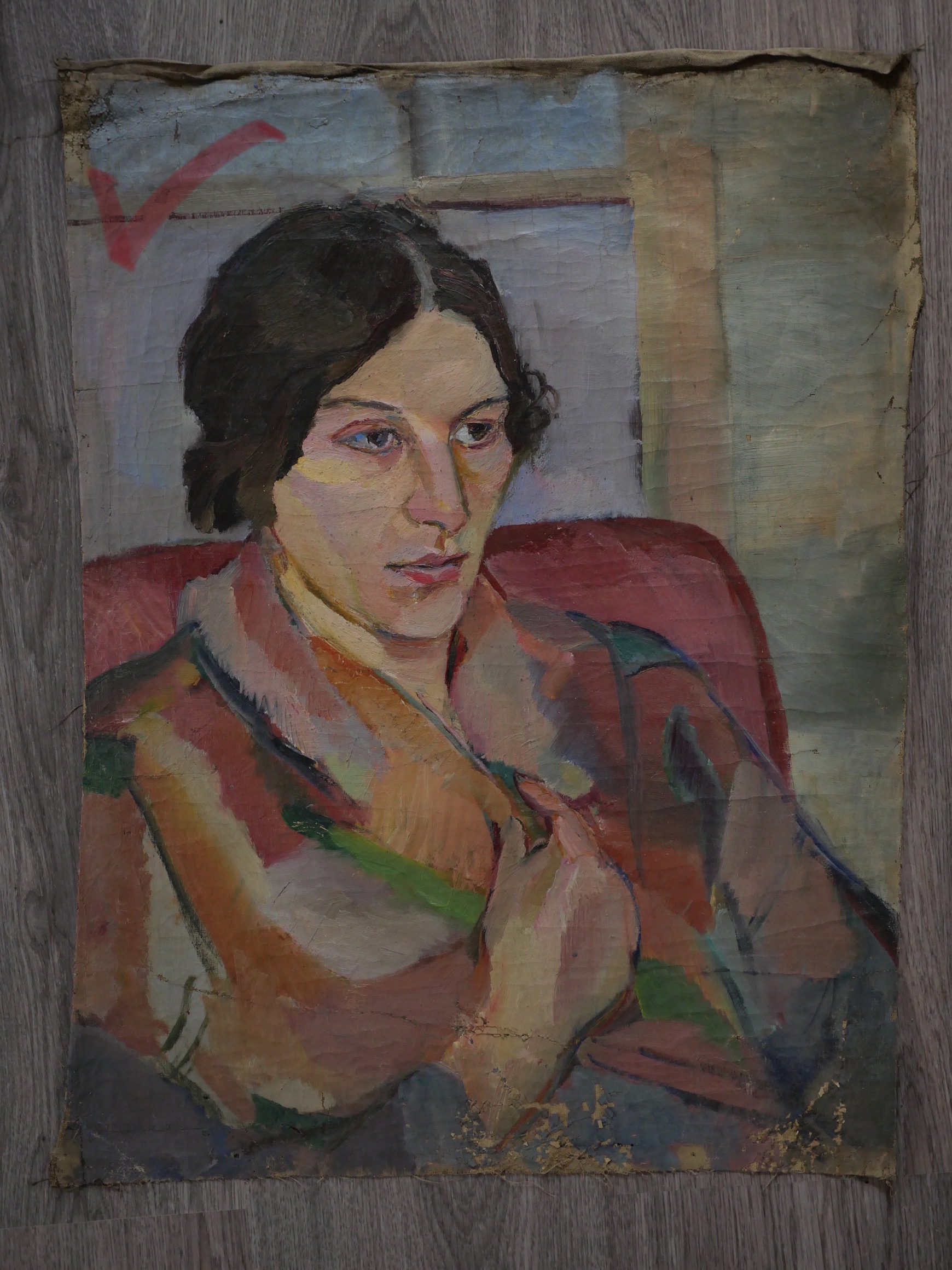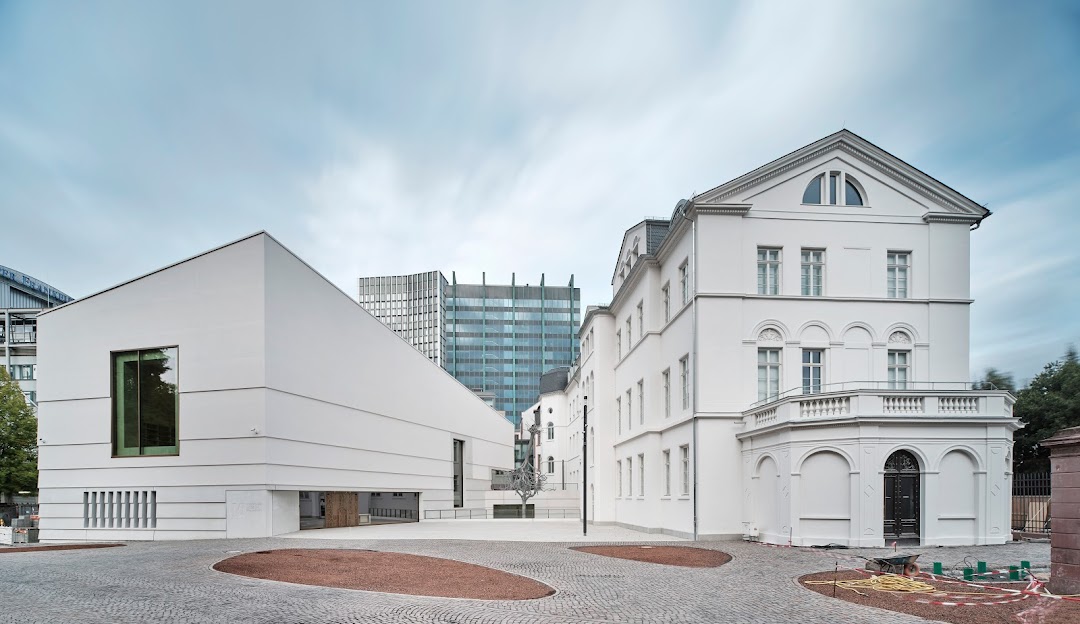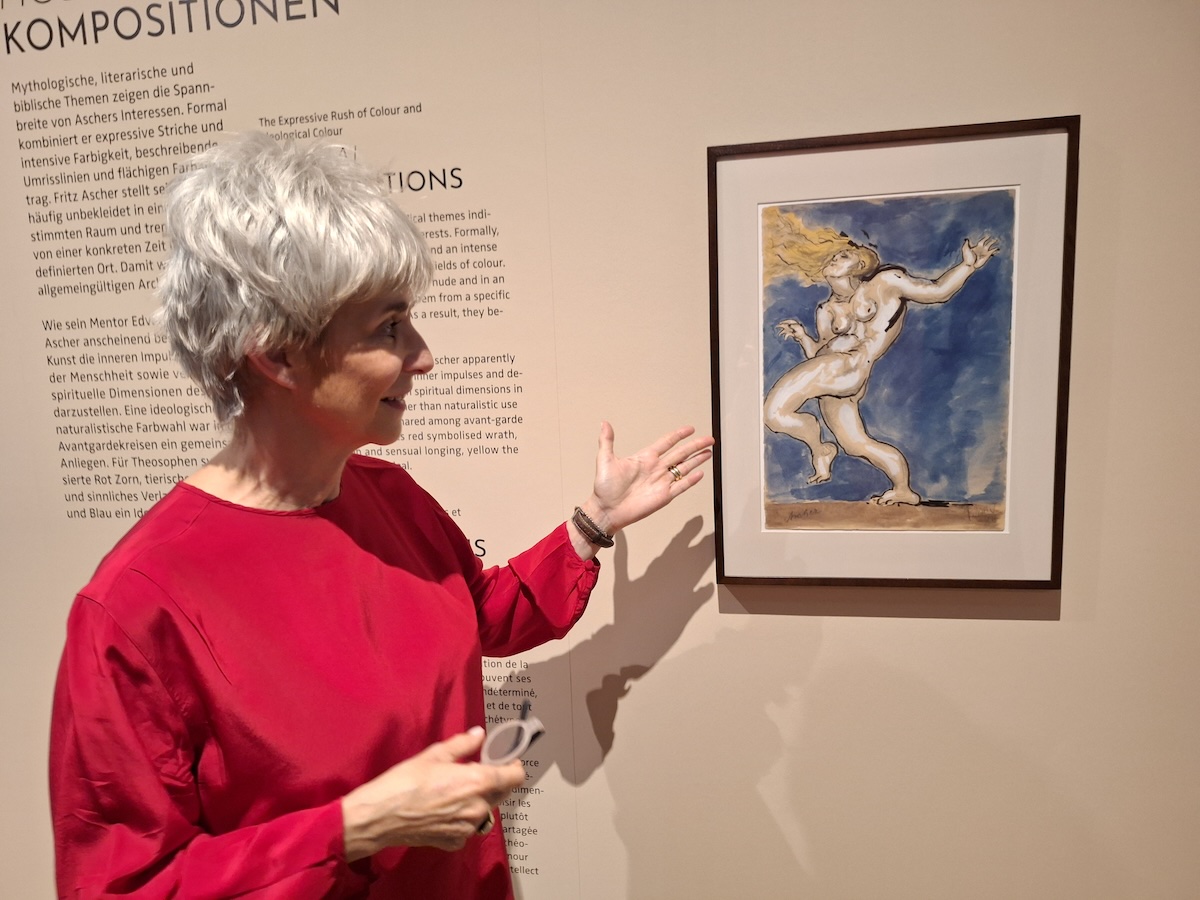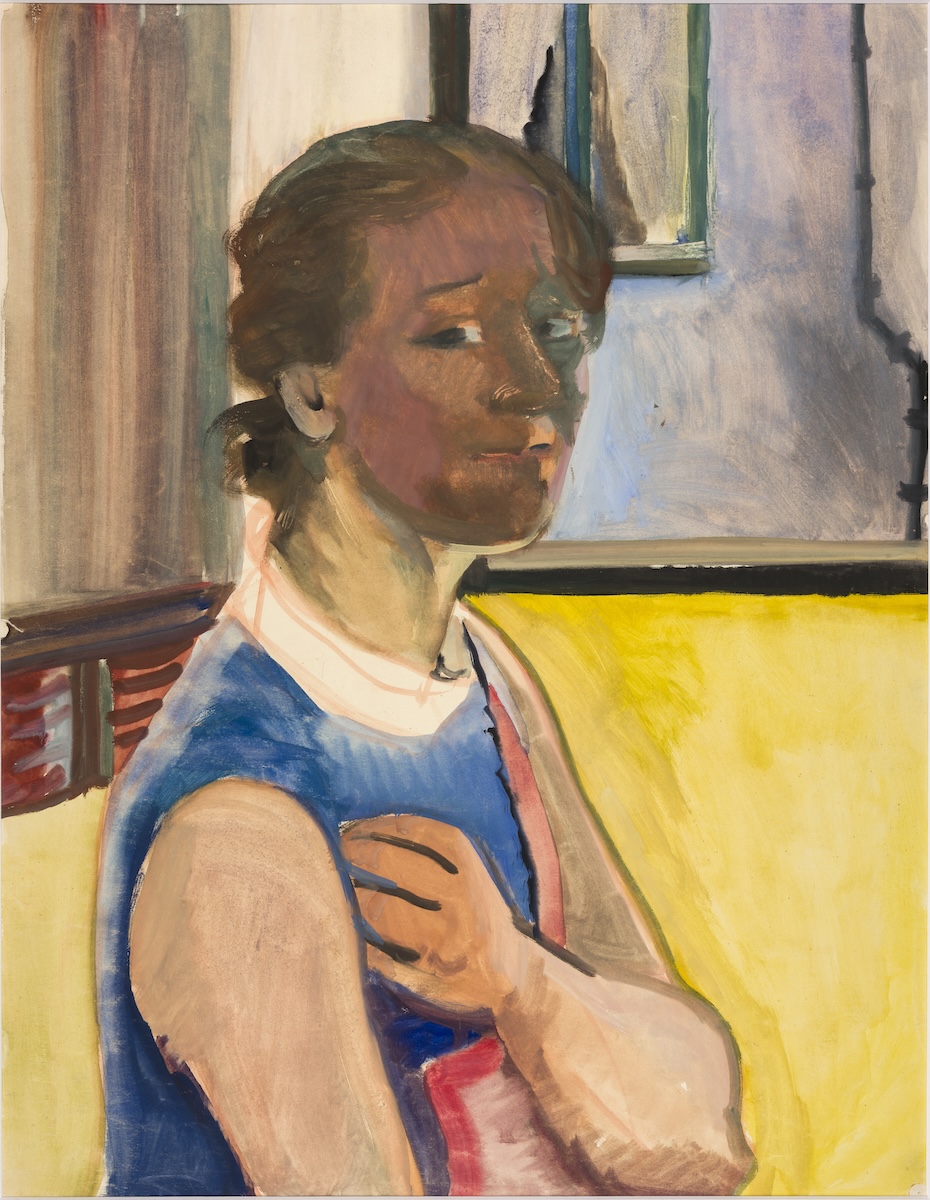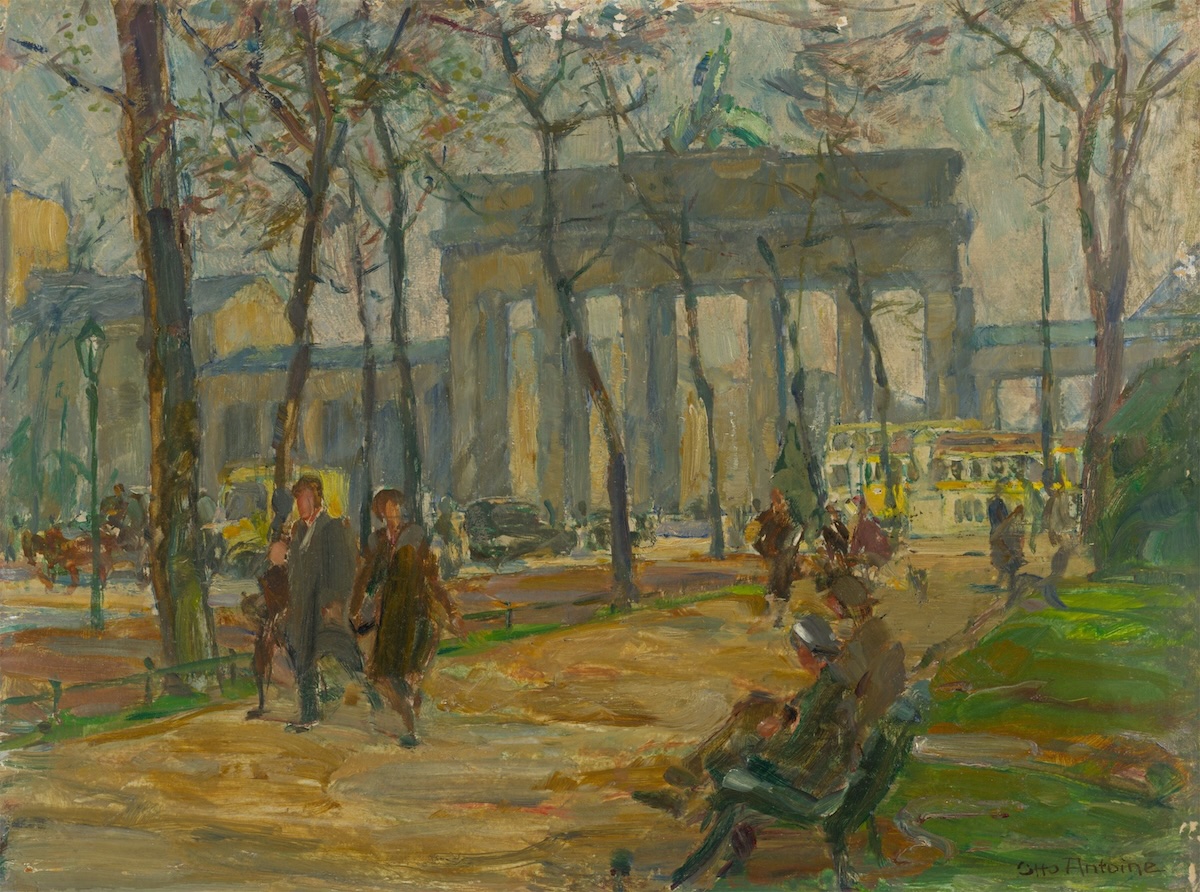Rachel Stern2025-04-01T11:50:07-04:00March 3rd, 2025|Events, Lectures, Memory, Past Events|
Join curator Ori Z Soltes, Rabbi Ronnie Cahana, and Kitra Cahana for a conversation about Survival and Intimations of Immortality: The Art of Alice Lok Cahana, Rabbi Ronnie Cahana, and Kitra Cahana. Image above: Alice Lok Cahana, 1940-44 Triptych: left panel, 1984. Collection Ronnie and Michael Cahana, Inv. 052 This unique and powerful exhibition at the Oregon Jewish Museum and Center for Holocaust Education explores the role of art and creativity, bringing the past into the present by focusing on three generations of artists from the same family. The artists and curatorial team will share their insights about the work in the exhibition, how the show was made, and the impact it had, and share [...]
Rachel Stern2025-02-13T07:00:51-05:00January 26th, 2025|Events, Lectures, Past Events|
This presentation starts with Bukiet reading an excerpt from a novel he is currently working on, followed by an inspiring discussion with Stern about the daily reality and nature of being a writer. They continue with a broader conversation about the arts and their relationship to reality. As they delve into his books, they explore the direct or indirect presence of the Holocaust in his works and the way it still shakes the foundation of our civilization. Melvin Jules Bukiet has published eleven books, including After, Signs and Wonders and Strange Fire. His fiction has appeared in the Paris Review and other magazines, his non-fiction in the American Scholar and other magazines. He [...]
Rachel Stern2025-01-20T11:20:36-05:00January 20th, 2025|Events, Lectures|
Ka.tzetnik, the Holocaust author who sold millions of copies and shaped its memory in Israel, was and remains an enigma. He remained elusive as rumors spread, claiming that he wrote all night long, in complete solitude, wearing his prisoner uniform from Auschwitz and burning his manuscripts by morning. During the explosive Eichmann trial, Ka.tzetnik was forced to reveal his identity to the public as he was summoned to testify. In a short testimony of a few minutes, he coined the term "The Other Planet" in describing Auschwitz, and fainted. The film explores the Ka.tzetnik enigma, shedding light on the person behind the myth, and brings back a chapter in his life that wasn't discussed much—his personal odyssey in coping [...]
Rachel Stern2025-02-12T14:47:01-05:00January 2nd, 2025|Events, Lectures, Past Events|
Hermann Goering’s art dealer, Bruno Lohse, prospered by selling stolen art for decades after WWII, while Jewish families struggled to regain their paintings and memories. Captured and interrogated by the Monuments Men after the war, he served a brief prison sentence. After his release, he dealt profitably in stolen art for sixty years after the war, selling to collectors, galleries, and major museums. Highlighting stories of Holocaust survivors working to reclaim their families' lost artworks, Plunderer reveals the failures of post-war justice and the continuing complicity of governments and the art trade. Screening followed by Q+A with producer John Friedman. In partnership with The Fritz Ascher Society for Persecuted, Ostracized and Banned Art. Director: Hugo Macgregor Year: 2024 Runtime: [...]
Rachel Stern2024-12-09T17:13:32-05:00December 9th, 2024|Events, Lectures|
Screening followed by Q+A with director Eliran Peled, writer Daphne Merkin, and author Benjamin Balint. Film and screening offered in partnership with the New York Jewish Week. Co-sponsored by Fritz Ascher Society for Persecuted, Ostracized and Banned Art. Upon his death in 1924, the great Czech-Austrian novelist Franz Kafka left behind a rich collection of unpublished manuscripts, with instructions to his friend Max Brod to burn them all. Thanks to Brod’s failure to fulfill Kafka’s wishes, the world has come to know one of the great writers of the 20th century. Now, 100 years after his death, the film “Kafka’s Last Trial” tells the story of this altruistic betrayal and the multi-generational effort to preserve Kafka’s literary legacy. Based on [...]
Rachel Stern2024-12-18T05:55:27-05:00December 4th, 2024|Events, Lectures, Past Events|
Jutta Götzmann, exhibition curator of "Love and Betrayal," presents the artist Fritz Ascher (1893-1970) during a tour. In addition to early charcoal, graphite and ink drawings, colorful gouaches are fascinating. Poems that are considered his "unpainted pictures" and were created in secret during the National Socialist era complement the exhibition. BUY TICKETS HERE The Fritz Ascher Society is a not-for-profit 501(c)3 organization. Your donation is fully tax deductible. YOUR SUPPORT MAKES OUR WORK POSSIBLE. THANK YOU. DONATE HERE
Rachel Stern2024-12-18T14:18:11-05:00November 24th, 2024|Events, Lectures, Past Events|
In this book talk, Michael Lambek follows the intertwined history of Mies van der Rohe’s iconic Villa Tugendhat and the family who inhabited it from 1930-1938. Part memoir, part social history, the book traces the family from its origins in a Jewish ghetto to the present day, focussing on the author’s maternal grandmother, Grete Tugendhat who commissioned and championed the house, which is now a World Heritage Site in Brno, Czechia. Image above: Ludwig Mies van der Rohe, Villa Tugendhat, Brno (Czechia), photo David Zidlicky The Villa Tugendhat, designed by Mies van der Rohe in 1929, is an icon of architectural modernism in Brno, Czechia. It was also a family home. [...]
Rachel Stern2024-12-05T06:58:15-05:00November 19th, 2024|Events, Lectures, Past Events|
While workmen were demolishing a house on Prague’s outskirts in July 2018 they were astonished to be deluged by works of art falling from a ceiling. Nobody knew the works had been hidden there. The art turned out to be that of Gertrud Kauders who had hidden them in the house of a friend before being deported to Theresienstadt and then to Majdanek where she was murdered on arrival in May 1942. Kauders was a serious and inventive artist, quite well known in Prague’s art world of the time. She worked in oils, pencil, crayon, watercolour and gouache. Now her work is held by museums around the world. Image above: Gertrud Kauders © Kauders Family Estate [...]
Rachel Stern2024-11-24T14:39:31-05:00October 28th, 2024|Events, Lectures, Past Events|
Der Maler, Grafiker und Dichter Fritz Ascher (1893-1970) wurde bereits als 16-Jähriger von Max Liebermann an die Akademie in Königsberg empfohlen. Ab 1913 gehörte er zu den gefragten Malern in Berlin. Er war ein genauer Beobachter seiner Zeit; die Urkatastrophe des Ersten Weltkriegs und die revolutionären Unruhen in Berlin führten ihn zu christlichen und mystischen Themen, die er radikal neu interpretierte. Nach 1933 erhielt Ascher als Jude Berufsverbot. Während der Pogrome am 9./10. November 1938 wurde er verhaftet und im Konzentrationslager Sachsenhausen und im Potsdamer Gestapo-Gefängnis interniert. Die Schoa überlebte er ab 1942 versteckt in einem Keller in Berlin-Grunewald. Während dieser einsamen Jahre verfasste er Gedichte. Als Künstler fand Ascher nach 1945 seinen ganz eigenen Stil. Angeregt vom nahe [...]
Rachel Stern2024-11-24T14:40:53-05:00October 22nd, 2024|Events, Lectures, Past Events|
Der spätexpressionistische Künstler Fritz Ascher (1893-1970) überlebte zwei Weltkriege und die Verfolgung durch das nationalsozialistische Regime. Als aufmerksamer Beobachter der Schrecken des Ersten Weltkriegs und der revolutionären Unruhen wandte er sich christlich-spirituellen Themen zu, die er radikal neu interpretierte. In intimen Zeichnungen beschäftigte er sich ab 1916 mit dem Thema Liebe und Verrat, sowohl in seiner Auseinandersetzung mit dem Kreuzigungsthema als auch mit der Figur des Bajazzo in der tragikomischen Oper „I Pagliacci“. Kurzvortrag und Führung von Rachel Stern zeigen den Künstler in seinem sozialen und politischen Umfeld. Image above: Fritz Ascher, Im Wald, um 1919. Weisse Gouache und schwarze Tusche über Aquarell und Bleistift auf Papier, 34 x 32,2 cm © Bianca Stock The late expressionist [...]
Rachel Stern2024-11-20T13:50:30-05:00October 11th, 2024|Events, Lectures, Past Events|
Felka Platek (1899 Warsaw – 1944 Auschwitz) came to Berlin from Warsaw in the early 1920s to become a painter. In 1932 she followed her friend and later husband Felix Nussbaum (1904 Osnabrück – 1944 Auschwitz) to Italy. In 1935 they decided to go into exile in Belgium. However, neither of them could escape persecution by the Nazis. They were captured in their hiding place in Brussels on June 21, 1944 and murdered in Auschwitz shortly afterwards. Image above: Felka Platek, Self-portrait in front of an open window, around 1940. Gouache on drawing paper, 65 x 49.7 cm. Felix-Nussbaum-Haus at Museumsquartier Osnabrück, on permanent loan from the Felix Nussbaum Foundation, photo © Felix-Nussbaum-Haus Osnabrück Anne [...]
Rachel Stern2024-10-09T14:25:07-04:00October 1st, 2024|Events, Lectures, Past Events|
Kathleen Langone speaks about the German born painter Otto Antoine (1865-1951), followed by a conversation with Jacquelyn Delin McDonald from the University of Texas at Dallas. Image above: Otto Antoine, Brandenburg Gate, 1928. Oil on cardboard Antoine displayed an early artistic talent but, due to economic circumstances, started a long-term career as a civil servant, initially as a clerk at a local post office. His drawing abilities were soon recognized, and he increasingly was used as a painter, engraver and designer of stamps for the German postal service. They also sent him to many far-flung places outside of Germany (such as Africa) to paint bucolic landscapes of those countries, which were used to promote their [...]





